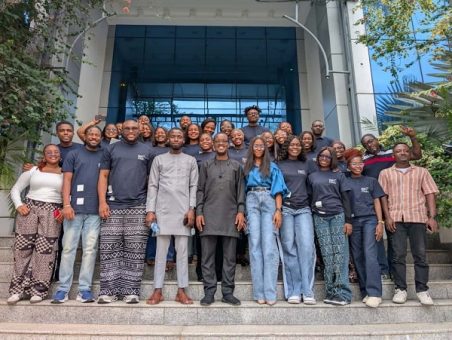TheNetClan Initiative is taking deliberate steps to rewrite the story of women in technology. The organisation recently graduated its second cohort of the Ladies in Network Engineering (LINE) programme, where most participants successfully earned the Cisco Certified Network Associate (CCNA) certification.
The initiative, founded by Abigail Jeffiah and Theodore Chukwudi, is aimed at opening doors for women in the often-overlooked field of network engineering, long overshadowed by software development and cybersecurity.
Since its launch, TheNetClan has sponsored more than 30 women to sit for the CCNA exams. In the latest cohort, over 20 candidates received full sponsorship, while others had their exam fees partly covered.
Beyond technical labs, the programme emphasised mentorship, collaborative projects, and even exposure to the commercial side of networking—such as product sales—to provide participants with a more holistic view of the industry.
Graduates say the experience has helped them bridge the gap between theory and practice, with some attributing new job offers and stronger confidence in interviews to the programme.
Beyond Graduation
For TheNetClan, this is just the beginning. Plans are already underway for a third cohort of the LINE programme, with the same intensive training model. But the organisation has its eyes on a bigger prize: establishing a NetClan Institute, which would expand training into cybersecurity, cloud computing, and artificial intelligence.
A proposed NetClan Community is also in the works, designed to let graduates specialise further in areas like wireless networking or DevOps. These expansions reflect a strategy to not only create entry points for women in tech but also to sustain long-term career growth.
Jeffiah, who co-founded the initiative after noticing the absence of platforms tailored for women in network engineering, emphasised the importance of visibility and support. “Too many women leave this field because they feel isolated or can’t find a pathway forward,” she said.
By reducing financial barriers, providing mentors, and fostering community, TheNetClan aims to shift the narrative around who belongs in the technical backbone of the digital economy.
Why it Matters
While the successes are promising, challenges remain. Sustaining funding for future cohorts, ensuring access to quality infrastructure, and scaling mentorship programmes are all hurdles the initiative will have to clear.
Still, the model provides a powerful glimpse into how targeted support can move the needle on inclusion. For Africa’s digital economy, where infrastructure and connectivity are as crucial as apps and startups, diversifying the talent pool in network engineering could prove transformative.
TheNetClan’s work is a reminder that inclusion is not just about counting numbers—it is about shaping sustainable careers and giving women the tools to influence how Africa’s digital future is built.
Talking Points
Africa’s tech scene is obsessed with fintech and apps, but without network engineers, there is no digital economy. TheNetClan is right to focus on infrastructure-level skills like CCNA. If we keep producing only app developers and neglect the people who make the internet actually work, we’re building castles on quicksand.
Gender inclusion in tech is often reduced to hashtags and photo ops. What TheNetClan is doing—paying exam fees, providing mentorship, and creating real communities—moves inclusion from “optics” to “impact.” If other initiatives can’t show tangible outcomes like certifications and jobs, then maybe they’re just PR campaigns in disguise.
It’s easy to push women into coding bootcamps or digital marketing tracks, but network engineering is gritty, technical, and often male-dominated. By choosing this path, TheNetClan is challenging stereotypes head-on. It forces us to ask: are African training programmes unconsciously steering women into “softer” tech roles instead of the backbone of the system?





